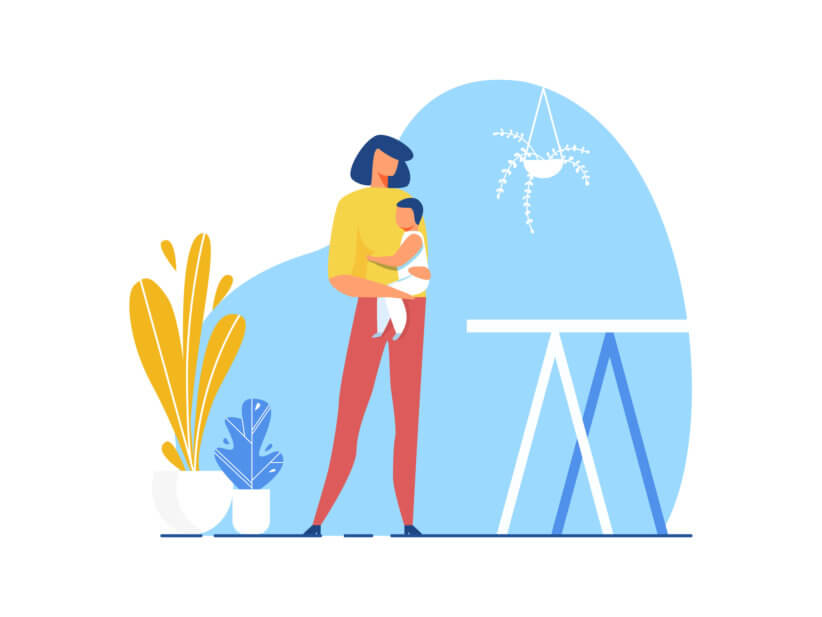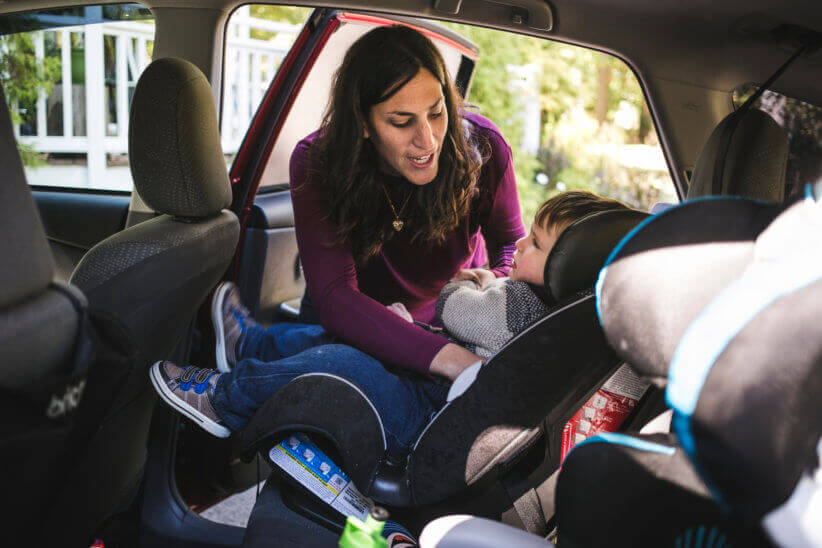The first years of life are a pivotal, intensive, yet very exciting time for learning and language acquisition. The time between birth and 5 years of age allows for a wide array of learning opportunities. During the beginning years of life, a child has a tremendous amount of plasticity. This term refers to the quality of being shaped or molded, and it is the duty of parents or caregivers to provide language learning in all realms.
There is never a wrong time to provide language stimulation for young children. Parents or caregivers can be taught specific learning strategies to be utilized during play, bath, and feeding times. It is pivotal to always set aside specific times, throughout the day, to allow for structured and unstructured learning opportunities.
Speech-language pathologists have a wide array of therapy tools to use within this age range. Within the infant and toddler arena, we can utilize manipulatives (i.e. Mr. Potato Head, jack-in-the-box, Ring Stacker, Shape Sorter, train, boat, truck, windups, etc), household items (i.e. chair, table, food utensils), pictures of family members, and also the opportunity to practice everyday routines within one’s home.
When will my child start to talk? This is usually the first question that speech-language pathologist’s specializing in early intervention are asked.
My analogous response is compared to constructing a new home: let’s visualize a home with a basement, first, and second floors. With comparison to speech and language development, the basement can be equated to an infant or toddler’s overall attention level, and once this is established we can then move along in therapy to a focus on auditory comprehension; the first floor of the home.
Learning is always a compounded effort. Each and every nuance learned can be scaffold to chain and chunk more information together.
Verbal expression (i.e. words, phrases) can only develop when attention and understanding skills are solidified; which is compared with the completion of the second floor of a home.
Speech-language pathologists’ main focuses are with that of joint and sustained attention, auditory comprehension (identification of basic body parts, shapes, household items, pictures of family members, primary colors, and also the following of simple, one step commands).
Once a very strong understanding, constant familiarity, and interest within specific tasks or activities are developed, then verbal expression will typically be exhibited. Infants and toddlers usually produce their first words, such as “mama,” “daddy,” “ball,” “bottle,” because they have a strong interest, intentionality, and purpose to have such words understood by their parents within their home environments.
A child’s learning environment is a haven for language growth, and is filled with an abundance of opportunities. Sometimes parents may have too many distractions with a multitude of toys all over the home. This is not such a good idea; hence it creates an overwhelming situation for many children.
If a child is exposed to a limited amount of toys, it allows the parents to practice specific tasks with the same item.
Only after specific goals are met, should another toy be switched. I feel that no more than five toys should be left out at any one particular time.
The rotation of toys can be done, but parents should use their judgment as to when this should be done. I suggest every week, adding a new toy to the existing group of items.
Always remember that in order to elicit the attention from our infants and toddlers, we need to start off with some very visually, and perhaps audible toys. This is why cause-and-effect toys, such as pop-up toys, and jack-in-the-boxes, are utilized as starter toys during early intervention. When selecting toys, it is suggested to look for visually stimulating, multi-colored, and lively, appearing toys. Developmental charts may accompany guidelines on which types of toys to select.
Speech-language pathologists provide on-going assessment of the children on their caseloads. Language growth, within the infant and toddler age range, is quite different from that of school-aged children. With a school-aged child, there are higher demands, and newly taught information is expected to be learned and absorbed on a daily basis through homework assignments. With infants and toddlers, it is a different assessment.
We expect a child to acquisition in a more lengthily time frame. Typically, on a quarterly basis, a speech-language pathologist will review specific progress of children to their parents, providing norm referenced or criterion referenced developmental improvements.
The early years of language development is a fascinating and dynamic learning time. A toddler is learning absorbent, and is such an exciting and fun time for parents, too.
It is important for parents to always keep in mind that each and every child, and also accompanying siblings, are not exactly alike; and unique in their own ways. It is strongly discouraged to be in the mind-set of comparing other children of a similar age, or older siblings. Your children are only this age once, and it is important to enjoy every moment with them.
Worrying about possible speech and language delays should be compartmentalized, and fun learning activities, and the creation of long-lasting memories, are best to replace such worrisome moments.
Thomas Daus is a licensed New York State Speech-Language Pathologist, and also holds certification through the American Speech and Language Hearing Association. He has close to 20 years of experience, and is truly dedicated towards making a positive impact in the lives of his clients. For further information, feel free to view his website at speak





















